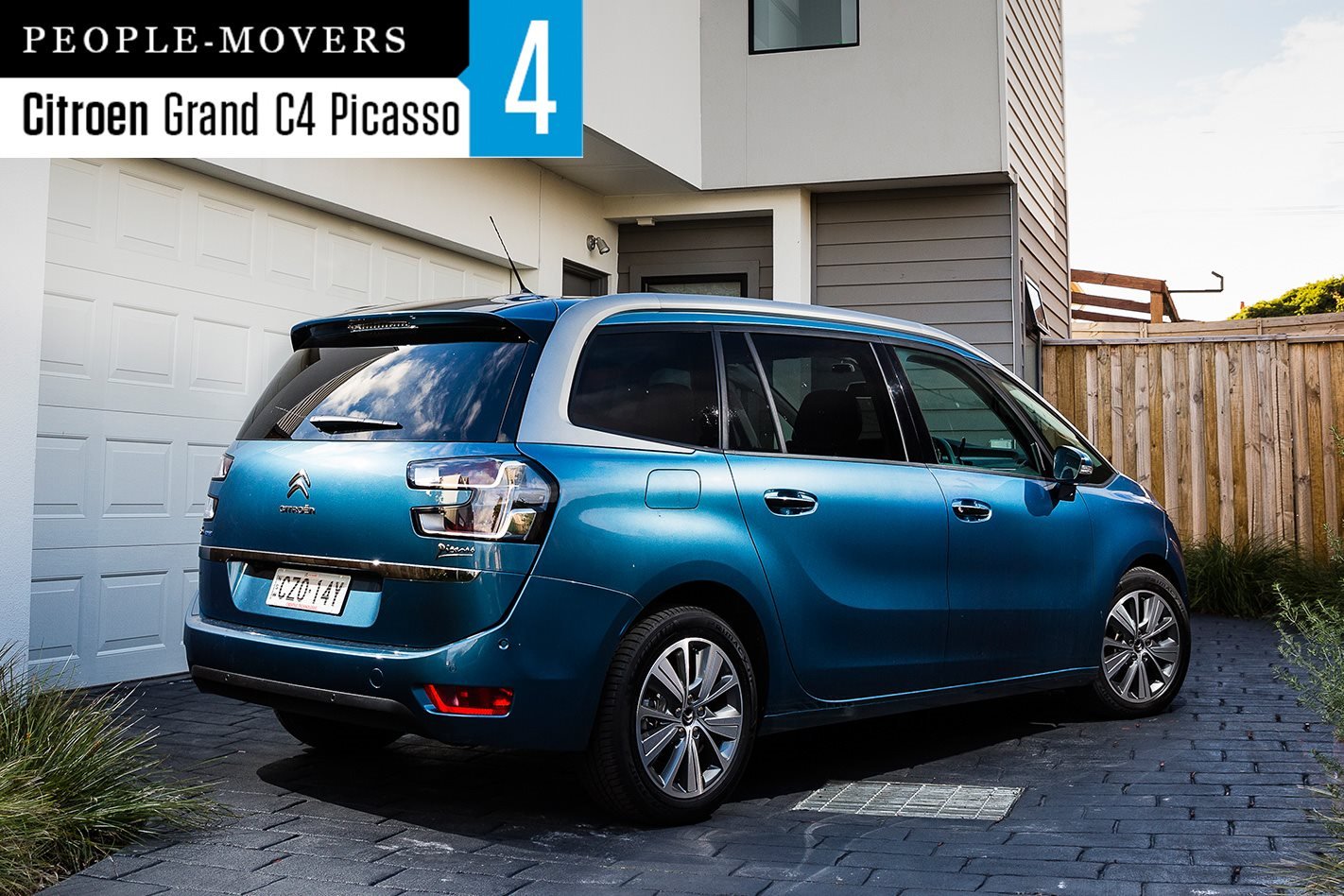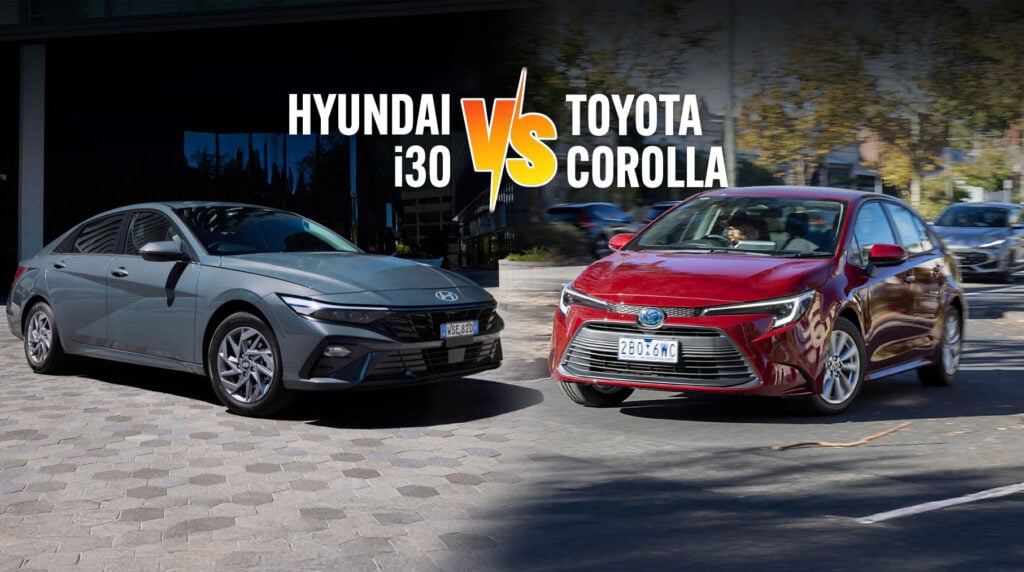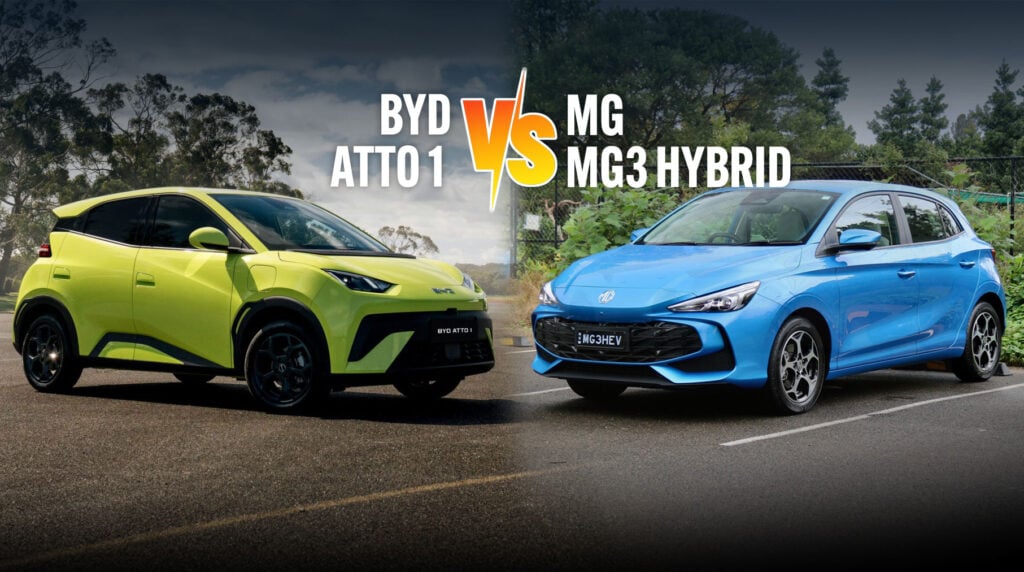First published in the October 2016 issue of Wheels magazine, Australia’s best car mag since 1953.
Quirkiness meets cool to deliver a mostly warm embrace.
Can’t wait to see the final score? Jump to the verdict now.
IT’S KIND of refreshing to see that, in the case of the Citroen Grand C4 Picasso, Citroen is back doing what it does best; hurling the rule book into the nearest dumpster. The Picasso is weird but also wonderful in many ways, and it’s a breath of fresh air to sit in a car made in 2016 that is so bright and open feeling. Of course, that’s a function of the fact that most of the bodywork is made from glass (or so it seems) and the panoramic sunroof fitted to our test car makes the Citroen feel light and bright regardless of which row you’re sitting in.
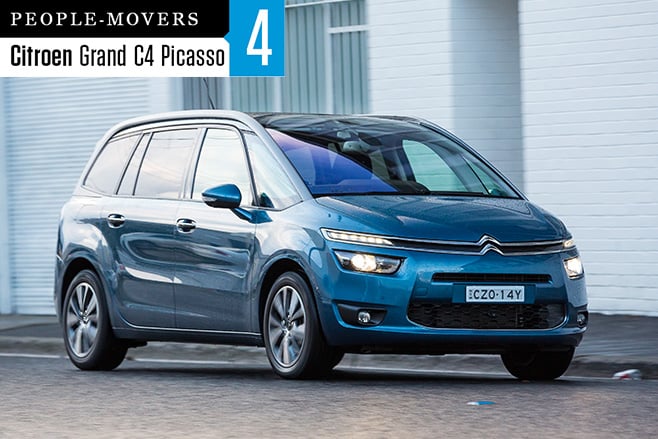
But cool is as cool does and in other ways the Picasso’s quirkiness requires you to relearn how to operate a car. The column gearshift, for instance, is on the wrong side of the wheel and Park is confusing to find at first. The central gauge layout is odd on first acquaintances, too. But the big head-scratcher is the interface between you and the audio, climate, sat-nav and phone controls. As in the Cactus (and Pugeot 308), they all share a single screen so you need to flip between the various pages to access them. Want to adjust the temperature while the passenger tunes the radio? Forget it.
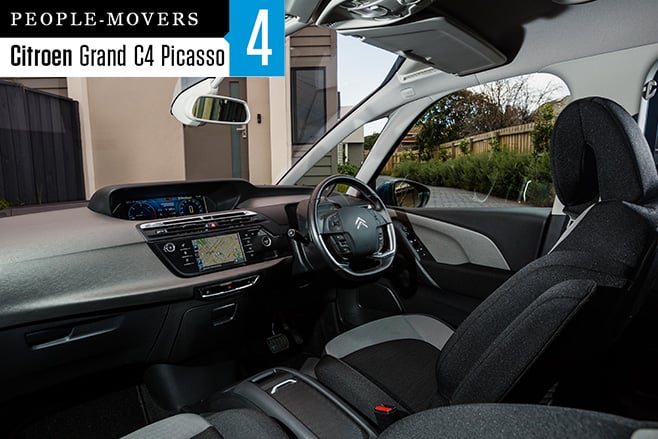
The turbo-diesel engine lacks the refinement of the petrol units in some of these cars, and it can feel a little wholegrain at low revs. Thanks to the tall gearing and an auto designed to hold higher gears longer, that is quite a bit of the time. Up and rolling, though, the diesel is sweet and smooth, and the excellent transmission calibration keeps it trundling along with relaxed vigour.
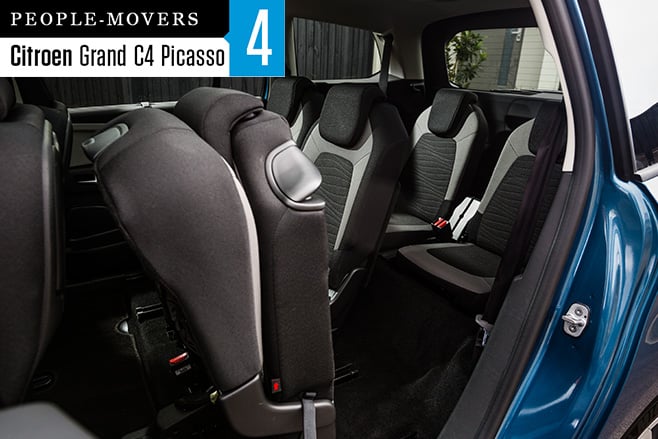
Painting with … petrol
Since it launched here in February 2014, the Grand C4 Picasso has been offered solely in top-spec Exclusive trim with turbo-diesel power. But when the facelifted model lobs in the first quarter of next year, a turbo-petrol will be added to the line-up.
Likely to be positioned as a price leader, running the same 121kW/240Nm 1.6-litre turbo-petrol as the Picasso five-seat, the refreshed Grand C4 Picasso swaps the diesel’s space-saver spare for a 15-inch steelie, due to the absence of ‘Blue HDi’ exhaust treatment. We sampled an early example following this Megatest and, while it lacks the diesel’s outstanding low-rev tractability, the petrol engine’s refined sweetness and switched-on transmission calibration makes light work of challenging hills, both urban and country.
 SPECS
SPECS
Price as tested: $49,990* includes tech pack ($5000)
Engine: 1997cc 4cyl, dohc, 16v, TD
Power: 110kW @ 4000rpm
Torque: 370Nm @ 2000rpm
Transmission: 6-speed automatic
Dimensions (L/W/H/W-B): 4597/1826/1644/2840mm
Weight: 1440kg
Cargo capacity: 632-793 litres
Tyres: Michelin Primacy HP 205/55R17 95V
Test fuel cons: 6.0L/100km
0-100km/h: 9.6sec
0-400m: 16.9sec @ 133.1km/h
80-120km/h: 6.9sec
3yr resale: 50%
Plus: Quirky can be good; great styling; exceptional efficiency
Minus: Not instantly familiar to use; small and firm seats
Verdict: 6.5/10


